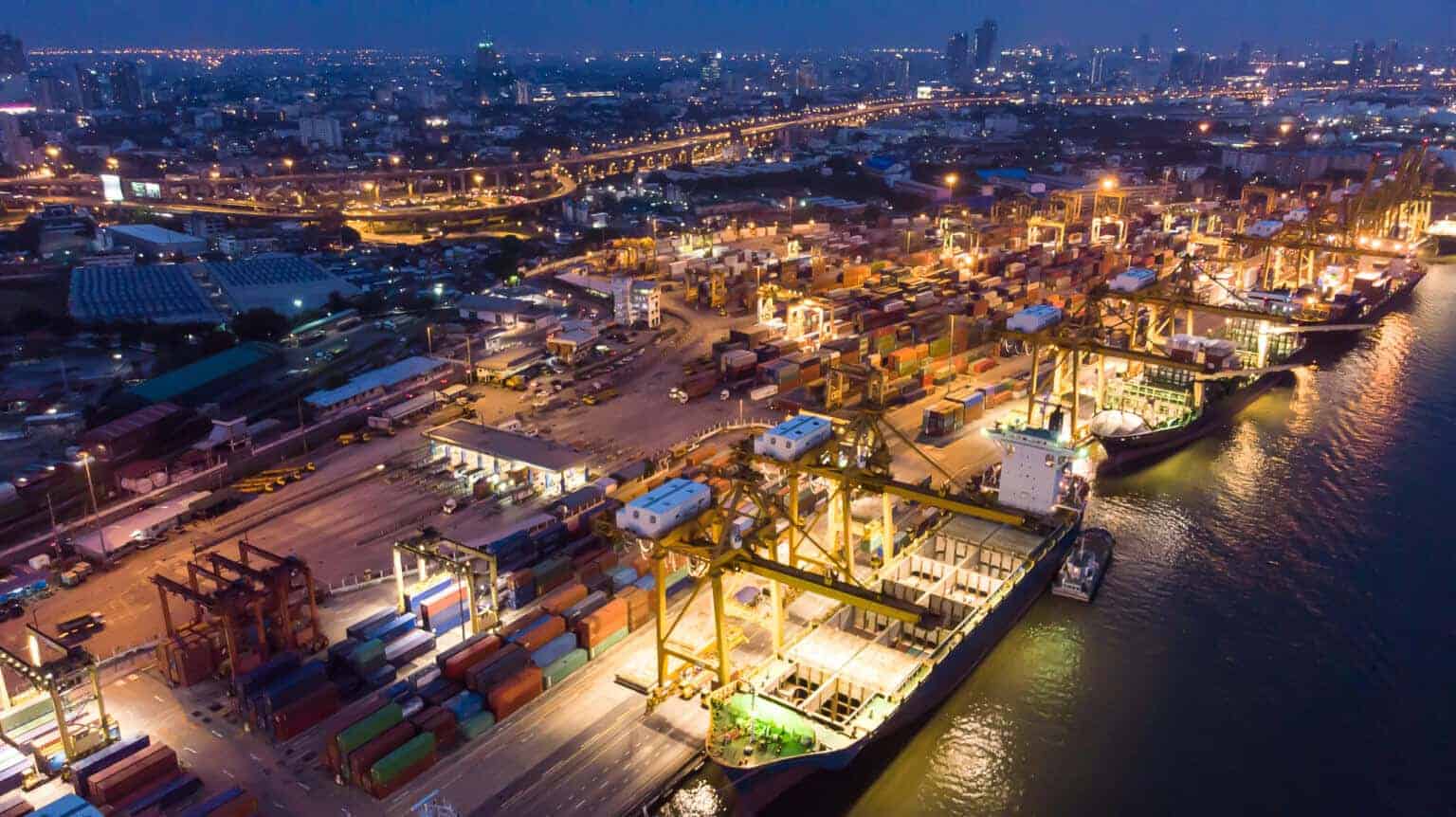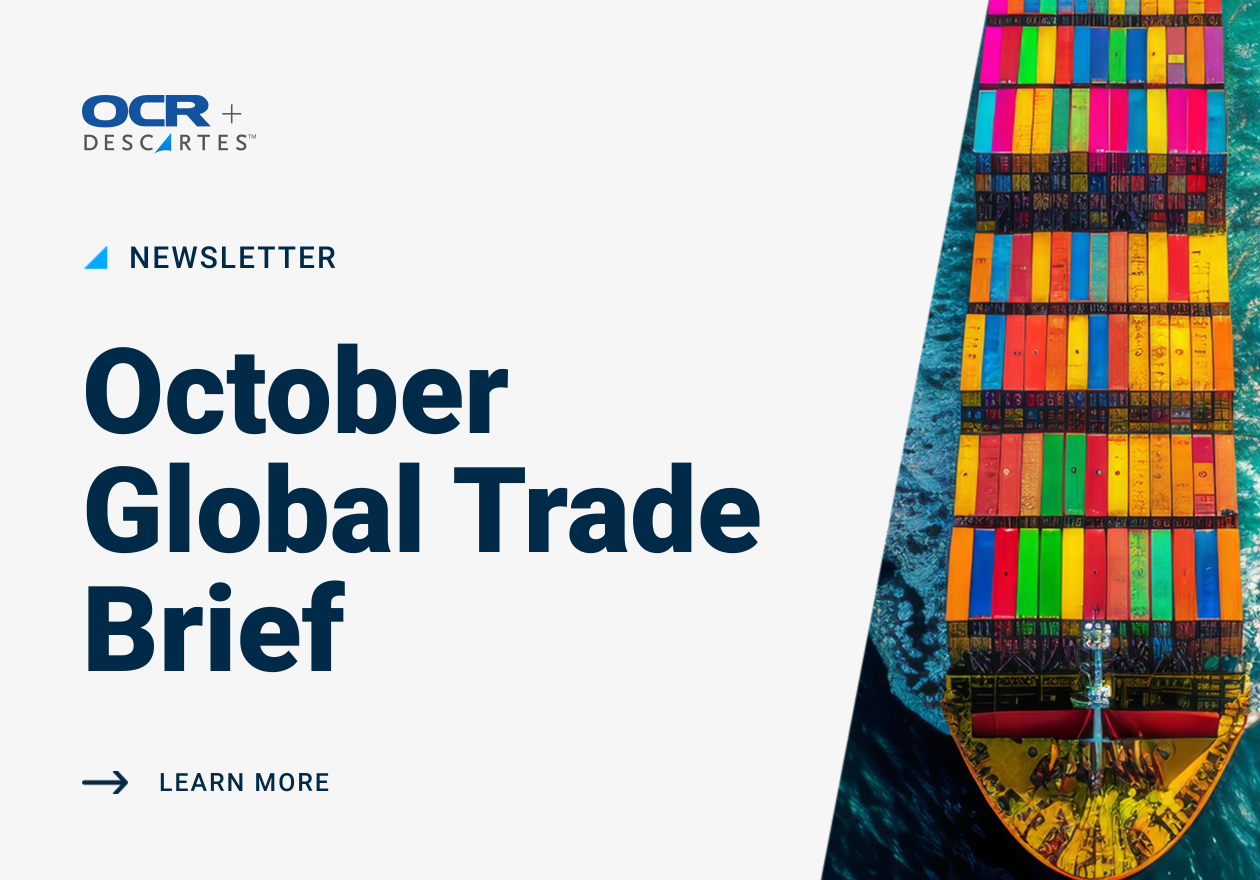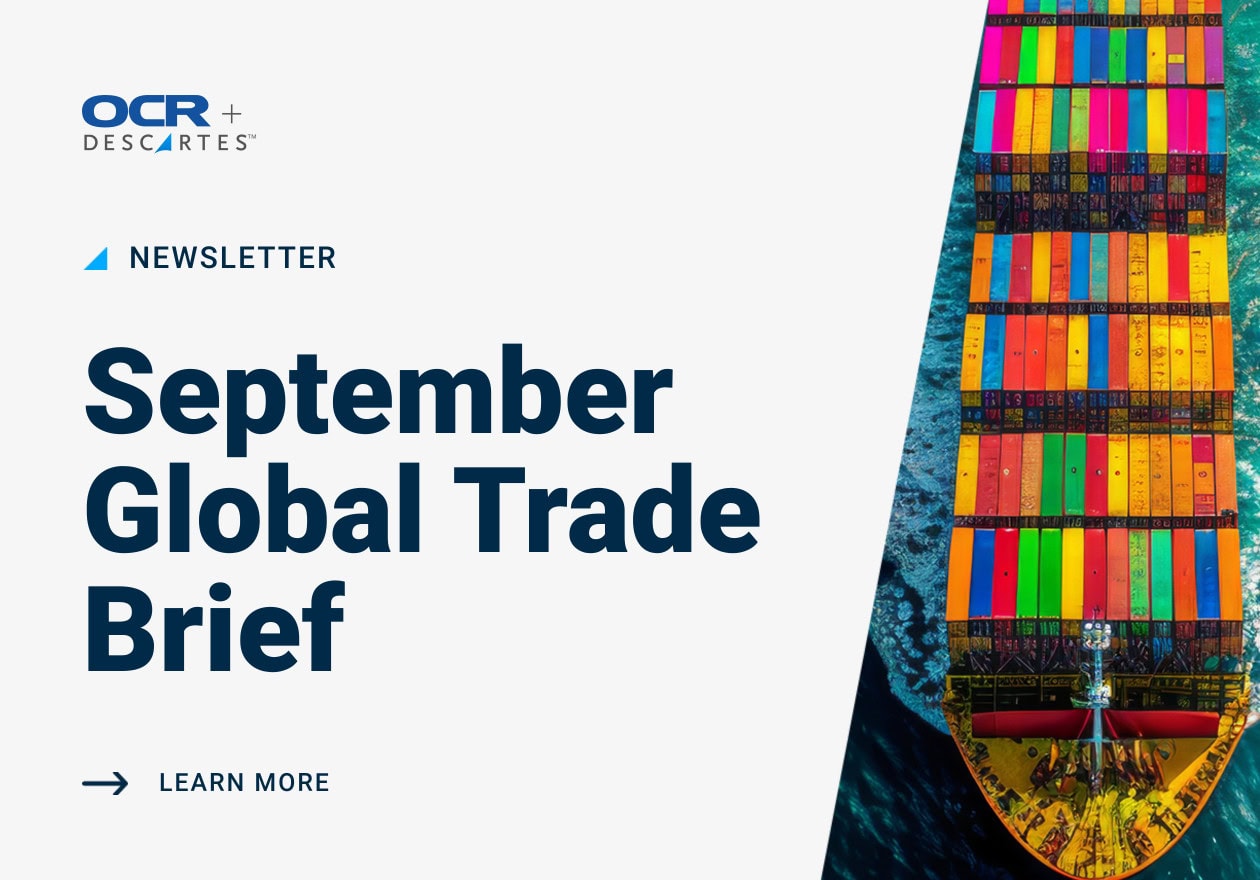Laminated woven socks from Vietnam
Findings:
- Vietnamese exporters received countervailable subsidies of 3.24% to 6.15%
- Total U.S. imports of Vietnamese laminated woven sacks in 2017 were valued at $21.2 million
Next Steps:
- Commerce to release final countervailing duty investigation determination
ADDITIONAL DUTY ON STEEL IMPORTS FROM TURKEY
Pursuant to the 10 August 2018 presidential proclamation, steel articles covered by the section 232 remedy that are the product of Turkey will be subject to an increased ad valorem duty rate of 50%. The increased rates of duty on steel articles that are the product of Turkey are effective with respect to goods entered, or withdrawn from warehouse for consumption, on or after 12:01 a.m. eastern daylight time on 13 August 2018.
TURKEY’S GSP ELIGIBILITY REVIEW
The Office of the United States Trade Representative announced it is reviewing the eligibility of Turkey to participate in the Generalized System of Preferences (GSP) program based on concerns related to Turkey’s compliance with the GSP market-access criterion and specifically concerning the extent to which beneficiary countries provide the United States with reasonable and equitable access to their markets. Since Turkey imposed additional tariffs on $1.78 billion U.S. imports (excluding imports from other trading partners) and that the USTR launched this GSP-eligibility review of Turkey based on concerns related to Turkey’s compliance with the GSP market-access criterion.
SECTION 301 TARIFFS – SECOND LIST OF CHINESE PRODUCTS RELEASED
The Office of the United States Trade Representative (USTR) released a list of approximately $16 billion worth of imports from China that will be subject to a 25% additional tariff as part of the U.S. response under Section 301. The first tranche of tariffs on approximately $34 billion of imports from China was effective 6 July 2018. The list of imports for the second tranche contains 279 of the original 284 tariff lines that were on a proposed list announced 15 June 2018. Changes to the proposed list were made after USTR and an interagency “Section 301 committee” sought and received written comments and testimony during a two-day public hearing last month.
EFFECTIVE OCTOBER 1ST, CBP USER FEE CHANGES
Customs Release states that the merchandise processing fee (MPF) ad valorem rate of 0.3464% will not change. However, the MPF minimum and maximum for formal entries (class code 499) will change.
The minimum will change from $25.67 to $26.22 and the maximum will change from $497.99 to $508.70.
Other changes reflect the following:
- The informal MPF (class code 311) will change to $2.10.
- The dutiable mail fee (class code 496) will change to $5.77.
- The surcharge for manual entry or release will change to $3.15.
INDIA IS ADDED TO LICENSE EXCEPTION STA TIER 1 COUNTRY LIST
Department of Commerce announced that India’s status as a Major Defense Partner will allow it to receive more U.S. high technology and military items without individual export licenses. India will be moved into Tier 1 of the Department of Commerce’s Strategic Trade Authorization (STA) license exception. STA Tier 1 treatment, comparable to NATO allies, will expand the scope of exports subject to the Export Administration Regulations (EAR) that can be made to India without individual licenses. This regulatory change will enhance the bilateral defense trade relationship and result in a greater volume of U.S. exports to India. Over the last seven years, approximately $9.7 billion worth of licensed exports to India may now eligible for export under this license exception.
PROPOSED REGULATION CHANGES TO CBP DRAWBACK REGULATIONS
CBP and the U.S. Treasury Department jointly issued a notice of proposed rule-making to amend the regulations to implement changes to the drawback regulations pursuant to changes made by the Trade Facilitation and Trade Enforcement Act of 2015 (TFTEA).
The proposed regulations establish a new process for drawback pursuant to TFTEA that, according to the preamble:
- Liberalizes the merchandise substitution standard
- Simplifies recordkeeping requirements
- Extends and standardizes timelines for filing drawback claims
- Requires the electronic filing of drawback claims
The proposed rules further:
- Explain how drawback claims filed during the transition period will work, and discuss interim policy guidance procedures for filing claims prior to these regulations becoming final
- Propose changes about bonds, regarding joint and several liability for the importer of the goods and the drawback claimant, and technical corrections and conforming changes to CBP regulations
- Propose to clarify the prohibition on the filing of a substitution drawback claim for federal excise tax paid on imported merchandise in situations when no excise tax was paid upon the substituted merchandise; or the substituted merchandise is the subject of a different claim for refund or drawback of tax under any provision of the Internal Revenue Code
ADVISORY WARNING BUSINESS ABOUT THE SANCTIONS EVASION TACTICS USED BY NORTH KOREA
The U.S. Department of State, the U.S. Treasury Department, and the U.S. Department of Homeland Security today issued an advisory to highlight the sanctions evasion tactics used by North Korea that could expose businesses—including manufacturers, buyers, and service providers—to sanctions compliance risks under U.S. or United Nations sanctions authorities.
The advisory is intended to assist businesses in complying with the requirements under Title III, the Korean Interdiction and Modernization of Sanctions Act of the Countering America’s Adversaries Through Sanctions Act (CAATSA).
RETALIATORY TARIFFS ON US PRODUCTS
United States has launched separate disputes at the World Trade Organization (WTO) against China, the European Union, Canada, Mexico, and Turkey, challenging the tariffs each WTO member imposed in response to U.S. tariff actions on imports of steel and aluminum.
US suggests that the retaliatory duties on U.S. exports imposed by China, the EU, Canada, Mexico and Turkey are completely without justification under international rules.
- China: Retaliatory tariffs, effective April 2, 2018, impose 15% to 25% additional duties on $3.0 billion in U.S. imports (based on 2017 trade values).
- European Union: The EU’s retaliatory tariffs are effective in two tiers. The first tier, effective 22 June 2018, imposes 10% to 25% additional duties on $3.2 billion in U.S. imports (based on 2017 trade values). Tier 2 is not effective until 1 June 2021. In tier 2, the EU will be imposing 10% TO 50% additional duties on $4.2 billion in U.S. imports (based on 2017 trade values).
- Turkey: Retaliatory tariffs, effective 21 June 2018, impose 4% to 70% additional duties on $1.8 billion in U.S. imports (based on 2017 trade values).
- Canada: Retaliatory tariffs, effective 1 July 2018, impose 10% to 25% duties on $12.7 billion in U.S. imports (based on 2017 trade values).
- Mexico: Retaliatory tariffs were effective in two tranches, on 5 June 2018 and on 5 July 2018. In total, Mexico is imposing 7% to 25% duties on $3.6 billion in U.S. imports (based on 2017 trade values).



